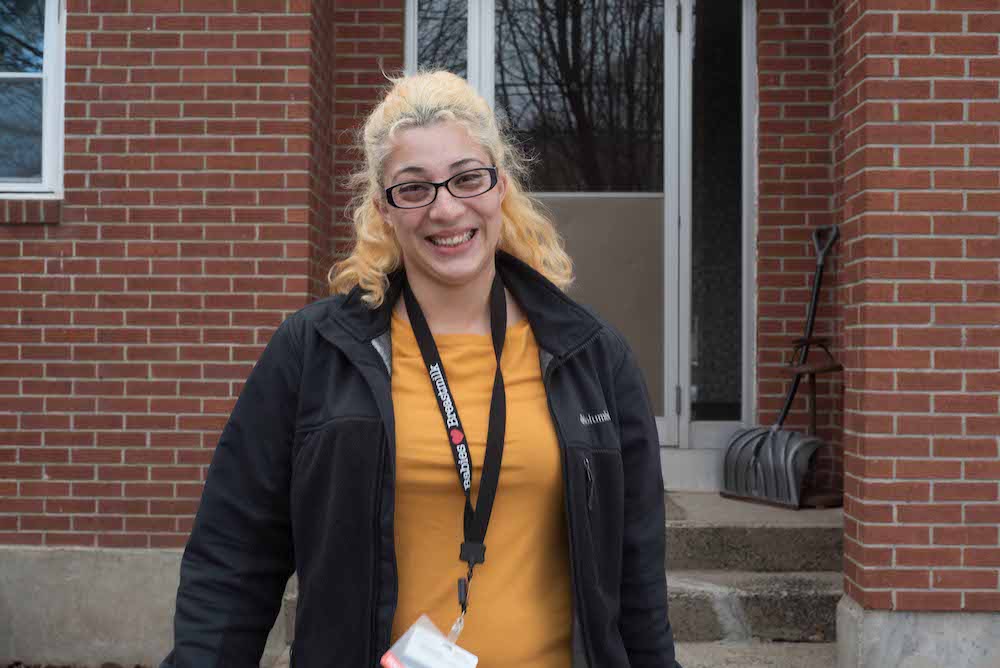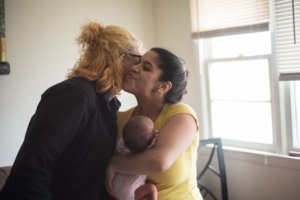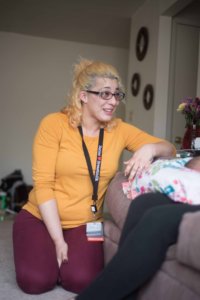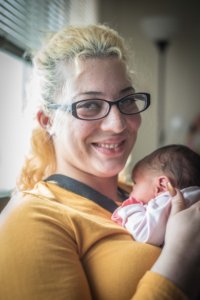This week’s community health worker profile features Yaisa Burgos, a breastfeeding peer counselor at the Hispanic Health Council’s Breastfeeding Heritage and Pride program in Hartford.
Click here to read last week’s story of a New Haven patient navigator who works with uninsured patients.
To learn more about community health workers in Connecticut, read our report, “Understanding Community Health Workers: Who they are and why they matter for Connecticut.”
The new mom was growing frustrated. She had planned to breastfeed her daughter, but she and her baby – born prematurely – were struggling to make it work.
“It was really complicated for her because she was getting different plans from everyone she was talking to,” said Yaisa Burgos, a breastfeeding peer counselor who worked with the mom in the hospital.
Burgos took a different approach. Instead of giving the woman another set of instructions, she listened, hearing her out and empathizing. Then Burgos talked about things the mom might try, things that worked when Burgos breastfed her own son. A few days later, Burgos and her supervisor visited the woman and her baby at home to see how they were doing.
Burgos is part of a team of peer counselors in the Hispanic Health Council’s Breastfeeding Heritage and Pride program, a successful model that relies on women who have breastfed their own children to provide support and assistance to new moms. They deliver free prenatal education to low-income pregnant women at Hartford Hospital and Saint Francis Hospital and Medical Center, and visit new mothers in the hospital after delivery and later, if needed, at home.
They provide reassurance – yes, those changes to your breasts are normal; no, don’t hesitate to call if you need anything – and help when moms struggle.
“I always try to explain to moms, we can have all the education, but it’s really a hands-on kind of experience,” Burgos said. “Breastfeeding is not something that’s super simple to do. A little bit of support definitely goes a long way.”
An Evidence-based model
Evidence suggests that the support works. Studies of the Hartford-based program found that mothers who received peer counseling were significantly more likely to continue breastfeeding compared to women who did not receive peer counseling.
What makes the model effective? Burgos points to the personal relationships the peer counselors build with moms. Some clients feel intimidated by medical professionals, worried they’re doing something wrong. In Burgos, they see someone more like them.
“I can relate to a lot of the things you have going on,” she said. “You live in the inner city? I live in the inner city.”
She’s seen new moms tell their doctors that everything is going great with breastfeeding – then tell her they desperately need help.
“We get to see them in their element,” she said. “I don’t have a problem going to their house and sitting on the floor because they’ve got clothes on the couch, and I’m not going to sit there and judge them.”
Home visits can have other advantages; Burgos or her colleagues sometimes notice other needs the family has, and connect them to other programs that help.
Drawing from experience
Burgos often draws from her own experiences. “Yeah, I know that feeling,” she might tell a woman with older children who worries she won’t have time to breastfeed her newborn.
In fact, Burgos got to know the breastfeeding program as a client. A mother of five, she wanted to breastfeed her older children, but felt lost and eventually gave up.
It was different when her youngest son was born three years ago. In the hospital after delivery, breastfeeding was painful and she thought about giving up. Instead, she got a visit from Bethany Salguero, a peer counselor from the Breastfeeding Heritage and Pride program.
“Just having that support, it changed the course of everything for me,” Burgos said. “I wasn’t alone in it.”
The Breastfeeding Heritage and Pride program focuses on low-income women and serves approximately 1,500 families each year. It is available to women who give birth at Hartford Hospital and Saint Francis Hospital and Medical Center in Hartford, but it is expected to expand soon to three additional hospitals. The program is free to women and funded largely by grants from the W.K. Kellogg Foundation and the Cigna Foundation, with additional funds from Hartford Hospital and the federal Women, Infants, and Children nutrition program.



